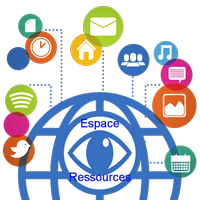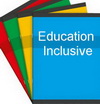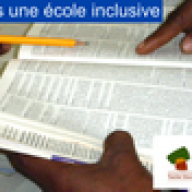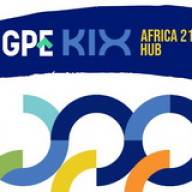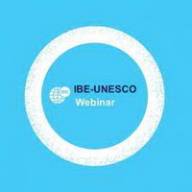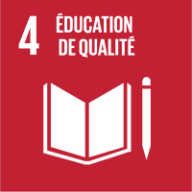Much popular attention has been paid to the so-called "$100 laptop" initiative and other programs to provide "1-to-1 educational computing" to students in developing countries. Even at $100 dollars per device, however, such solutions are still much too expensive for most communities around the world. Indeed, the typical scenario for computer use in schools in developing countries, and especially in rural areas, is for multiple children to crowd around one computer while one child controls the mouse, leaving the other children as onlookers.

Author : Michel Trucano, World Bank
Some people say that the approach of providing children with a computer (or laptop) is simply not scalable in most developing countries, and that, where the use of ICTs is being considered, we should be looking instead at different 'gadget', the mobile phone, which is becoming increasingly ubiquitous around the world, even in some of the poorest communities.
Phones vs. laptops -- it is a fun debate, but certainly this will not be an either/or choice. At least in the short term, computers will be seen as too expensive for use in many contexts, and while the time of the mobile phone as an educational device may well come, we are certainly not there yet. By the time that prices drop far enough for the 'high end' devices to be much more widely affordable, and that functionality and content increase on the 'low-end' devices to make them more functionally viable, whole new classes of devices may well be available and relevant for use in education settings in developing countries as well (e-readers, tablets, as-yet unnamed devices that will fall somewhere in between all of these categories*). Does this mean we should just wait?
Some people emphatically argue 'no', and are busy trying to adapt/adjust/leverage existing technologies already in widespread use in schools for the contexts and settings (and price points) more relevant to many schools in developing countries. In this context, some creative people asked the following question:
What would happen if you only bought one computer,
hooked it up to a projector,
and then connected up 50 children
using 50 computer mice?
This idea -- half-jokingly dubbed 'One Mouse Per Child' in some quarters, in an obvious nod toward the well-known One Laptop Per Child project -- has been successfully tested in pilot experiments in Chile and India, aided by special educational software developed and tested to take advantage of such multi-user scenarios, with additional, larger-scale pilots expected to follow. It is just one innovative approach among many in a movement to re-imagine how ICTs can be more effectively and equitably be put to use at scale in schools, especially those in poor communities in developing countries.
Miguel Nussbaum, one of the world's leading researchers exploring the use of a variety of highly collaborative "1-to-1" computing solutions in education (from laptops to PDAs to "massive multiple mice"), stopped by the World Bank in May to share results from his varied and fascinating research in these areas and to propose that we should perhaps broaden the way we think about relevant, cost-effective educational technologies for use in Sub-Saharan Africa, Asia, Latin America and beyond. Nussbaum subsequently offered a short synopsis of some of his work in this area as part of the online EduTech Debate in June on low-cost ICT devices. (For those of you interested in more information about this particular project, this synopsis is a good place to start.) This is certainly fascinating and very practical work.
Some people argue that, because multiple mouse learning scenarios and tools provide affordable access to (some) educational technologies now, related solutions can rightly be viewed as promoting more equitable access to ICTs. At the same time, however, some critics feel that approaches like the use of multiple mice actually raise strong equity concerns. One commenter during the related online EduTech Debate, for example, felt that this is "about how kids in the developing world should be short changed, sold short, under-resourced, under-estimated, and should be trained to have limited expectations. They need one laptop not one mouse. This is like handing out an extra set of keys then changing the locks. This is a recipe on how to start small and stay there."
The point here isn't to advocate for the primacy of *any* specific technology choice, nor to take sides on such important debates about equity (you are of course free to do so in the comments section below).
Rather, it is merely to highlight the fact that different approaches and tools exist beyond the narrow model of how computers have typically been used in schools in places like North America, Europe and Australia. These different approaches and tools -- like, for example, 'multiple mice' -- potentially offer new opportunities for ICY-enabled learning, in a variety of educational contexts, beyond what are offered by traditional conceptions of what educational technologies can and can not do.
Indeed: If you believe that education isn't (or shouldn't be) a 'one size fits all' endeavor, why should you think that we should only consider 'one size fits all tools' technology tools (whether PC, laptop, phone, tablet or some other device) to help meet the greatly varied education objectives and challenges faced by learners and teachers in highly varied learning environments around the world?


